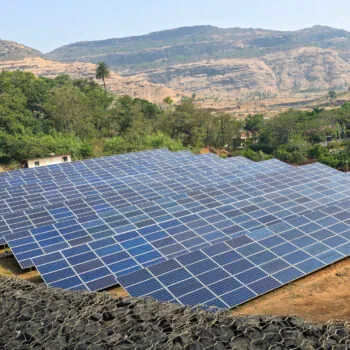The closure of the UK’s largest gas storage facility along with disruption to Liquefied Natural Gas (LNG) supplies last month puts UK energy at a crossroads. Rather than focus on imports or fracking, Britain should pay more attention to decreasing demand and renewable energy.
Last month British gas company Centrica announced the closure of their Rough storage facility because of technical and commercial reasons. The 32-year old site, located off the Lincolnshire coast, had been running at reduced capacity since March 2015. Recent tests of the 32-year old site, showed it could not safely return to full operation. It was almost 70% of the UK’s gas storage capacity. At peak flow, it could meet around 10% of daily demand.
In May – before the closure of Rough – system operator National Grid published its Winter Outlookreport on the security of energy supplies this winter. The report concluded the UK would have adequate gas supplies because of its diverse supply from North Sea production, pipeline imports from Norway and the EU, and LNG from global gas markets. Grid reaffirmed that a supply crunch is unlikely, and the Department for Business, Energy, and Industrial Strategy (BEIS) said it was not worried by the shutdown of Rough.
But losing the supply flexibility that Rough provided means dependence on imported gas will increase. Imports are already just over half of the total UK gas supply. Around 40% of total supply arrives via pipeline from Norway and the EU, but the future of these pipelines after Brexit and wider participation in the EU’s internal energy market is unclear.
The rest arrives as LNG on board tankers, almost entirely from Qatar – the world’s largest LNG exporter – though the UK is typically a destination of last resort for Qatari LNG, and deliveries have fallen in recent years. But the stability of this supply came under scrutiny last month however because of the diplomatic row between Qatar and its Middle Eastern neighbours. Qatari government officials have said LNG exports would not be affected – though supplies to countries involved in the spat have been disrupted. Despite initial fears around UK supplies, tankers from Qatar arrived at each of the Dragon and South Hook LNG terminals last week, and another is expected at South Hook this week.
The combination of Rough’s closure and a potential disruption to LNG imports changes the dynamic of UK gas supply and price security. As imports increase, the UK will become more exposed to international market prices. Wholesale costs are 43% of a standard dual-fuel domestic bill, and consumers will be more exposed to any spikes in international prices as imports increase. The effectiveness of the government’s proposed price cap would also be weakened by this, as what makes up the price would be increasingly determined by external factors outside the UK.
Last month’s events have inevitably lead some, such as the UK Onshore Oil and Gas industry body, to call for the development of shale gas. Proponents have long argued it can increase gas security through reducing imports and offsetting declining North Sea production.
Shale gas and fracking have been dogged by political and social-acceptance problems and their claims being able to lower bills have been regularly disputed. Moreover, reaching commercial levels of production could take 10-15 years. UK production is highly unlikely to reduce overall imports or be large enough to affect wholesale gas prices, because of the UK’s physical interconnection with other European markets. In 2013 Centrica chief executive Sam Laidlaw said that it would be at least a decade before the UK produced shale, and it would not be the game-changer it was in North America. Four years on, this remains the case, even though a number companies, such as Cuadrilla, IGas and Ineos, remain active.
There is also the bigger issue of whether we should be developing more fossil fuels at all. Although gas emits less carbon than coal, maintaining its role for power generation without using Carbon Capture and Storage is not compatible with the UK’s Climate Change Act or the Paris Climate Agreement. Growing levels of renewables will reduce the need for gas, and given the 10-15-year development lead-time with shale, current price trajectories for renewables suggest gas may not be competitive in power generation by the time shale becomes commercial.
Whether we like it or not, gas is likely to retain a role in domestic heating, as it is harder to decarbonise than electricity. This could be in the current form, or by using so-called low-carbon gas such as biogas or hydrogen. The government can decarbonise heat by reducing demand with efficiency, insulation, and using smart technologies – which would also lower household bills better than a price cap could.
Import dependency, losing the Rough storage facility, and worries about access to EU markets due to Brexit should alarm all UK policy makers. The fact is reducing demand for energy and gas is a more effective way of ensuring our security of supply and long-term decarbonisation, rather than pinning our hopes on imports and undeveloped shale gas.


